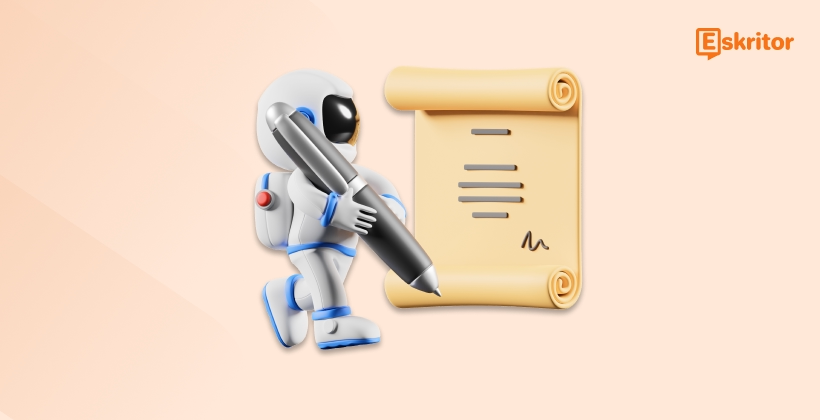The Role of AI in Modern Editing Practices
The Role of AI in Modern Editing Practices
Blog Article
Effortless Precision with AI Editing Solutions
As synthetic intelligence (AI) evolves, it remains to revolutionize how we strategy contemporary editing practices. From syntax correction resources to sophisticated material generation programs, AI writer is reshaping the way authors, authors, and designers improve their work. This blog explores the role AI plays in contemporary modifying and the influence it's across industries.

AI-Powered Methods Primary the Cost
AI-powered methods are becoming an essential element of editing workflows. Software fueled by normal language handling (NLP) and equipment understanding may do projects like syntax checks, stylistic recommendations, and phrase restructuring with amazing rate and accuracy.
As an example, AI-based syntax checkers can recognize errors that the eye may possibly overlook, such as subject-verb deal issues or misplaced modifiers. Equally, style innovations developed by AI make certain that tone and flow align with the supposed market, that is important for professional editors.
These instruments aren't only limited to standard syntax corrections. They are capable of increasing readability, transforming passive voice to active voice, and even paraphrasing whole paragraphs without changing the meaning.
Effectiveness Meets Time Savings
Studies reveal that the usage of AI tools can lower editing time by as much as 30%. Rather than poring around every word manually, writers can concentration their initiatives on innovative and proper elements of content. This shift enables experts to handle higher quantities of text in faster intervals, that will be especially valuable for industries like writing and electronic marketing.
Moreover, predictive AI functions can spotlight recurring problems, supporting authors improve their skills over time. For agencies, this equals less resources spent on revisions and more polished components right from the start.
Increasing Convenience and Globalization
AI's role in modern editing extends beyond efficiency. Advanced translation and localization tools allow creators to modify material effortlessly for worldwide readers, breaking down language barriers with precision. That engineering assures that exactly the same concept may resonate with countries worldwide while preserving their authenticity.
AI also raises inclusivity criteria by improving accessibility in content. For example, algorithms can identify potentially non-inclusive language and suggest alternatives. This capacity allows authors to refine writing so that it resonates with diverse audiences.

Impressive a Harmony Between AI and Individual Imagination
While AI excels in rate and precision, it generally does not change individual editors. Models usually absence the capacity to understand nuance, emotion, or social context fully. The best process combines AI's performance with human creativity and understanding, leading to really exceptional work.
By leveraging these technologies in modern modifying techniques, builders and authors equally can make supreme quality content that aligns with the fast-paced demands of today's electronic world. AI could be the future of editing, but the human feel can be needed for storytelling and connection. Report this page